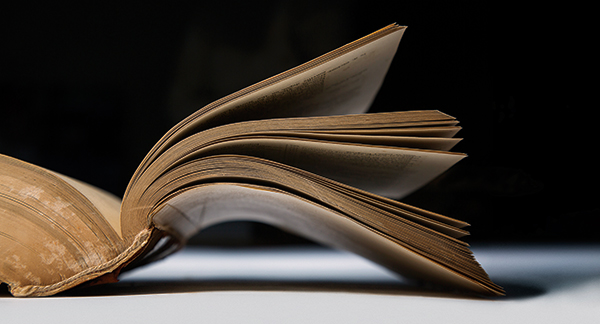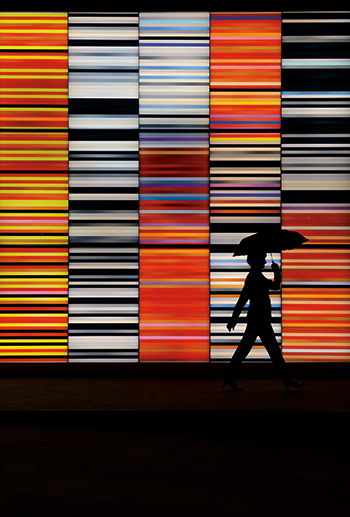Written by Chad Taylor
Photos by Duane Tinkey
The late Whitney Balliett, venerable jazz critic for The New Yorker, once described the genre as “the sound of surprise.” It’s the dizzying heights of American ingenuity, the unbridled feeling of promise and the genius of improvisation, all crystallized into eighth notes. While Des Moines may never make anyone’s list of great jazz cities, there are still surprises to be had. The capital city’s jazz tradition dates back nearly as far as the genre itself, and for as long as anyone’s cared to look, it’s always been easy to find pockets of people playing—and appreciating—Des Moines’ jazz surprises. Here are three of them.
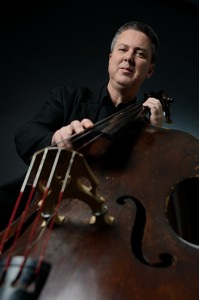
Steve Charlson
Bass Player
For anybody who has an affinity for the upright bass, your search for the best that Iowa offers should begin and end with Steve Charlson. Born in Waterloo, Charlson began playing when he was in fifth grade.
“That’s 35 years or more,” says the 49-year-old with a chuckle. “And I still don’t know what I’m doing.”
After spending time studying music at the University of Iowa as well as at Indiana University, Charlson wound up about as far from music as he could get. “I made my way to New York City and needed a day job,” he explains. “(So) I have a B.A. in finance.”
But Charlson’s true calling has always been undeniable.
Now his playing credits include symphonies in just about every Iowa city that hosts one, as well as the Des Moines Big Band; stints with the Glenn Miller Orchestra and the Jimmy and Tommy Dorsey bands; and backing up everyone from Rosemary Clooney to The Captain and Tennille.
But you don’t have to drop cash on a Wells Fargo Arena or Des Moines Civic Center show to hear Charlson’s bass sing, because every weekend he can be found playing at a different Des Moines institution: Chuck’s Restaurant in Highland Park. Longtime Chuck’s owner Linda Bisignano “got the idea for live music five or six years ago,” Charlson says. “At first, I was responsible for just Fridays. Then after (another musician) left, I was covering Thursdays, Fridays and Saturdays, and it’s been that way for three or four years now.”
Bisignano died last November, but Chuck’s new owner has made it clear that Charlson’s not going anywhere. And so, every weekend, Charlson entertains Chuck’s patrons, with the help of a rotating collection of musicians.
“Linda made sure that (saxophonist) Julius Brooks was always a part of the mix,” Charlson says. “And I agree. He’s 86 and knows all the tunes, and the ones he doesn’t know, he hears once and he’s fine. We tend towards piano (over drums) because it’s a fuller sound and it’s a small room. So we’ve kept it to just the four musicians (bass, keyboards, guitar, sax).”
Charlson also employs a rotating stable of vocalists, bringing some of Des Moines’ finest talents to Sixth and Euclid avenues: Amber Duimstra, Heather MacLennan, Gary Jackson, Tina Haase Findlay and Max Wellman all take their turns fronting Charlson’s bass.
“Steve is by far my favorite musician to perform with,” says Wellman, who has performed across the nation. “He’s always handled himself professionally and could play, I believe, in any city in the world.”
Different vocalists mean a different show every night so as to adapt and cater to each performer’s unique abilities and desires.
“They dictate what they want to sing,” Charlson says. “With Amber, she’ll say, ‘I like this song, I like the way so-and-so does it,’ and then I’ll just write a basic lead sheet in her key. Same thing with Gary Jackson; he’ll say he wants a song, then I’ll write up just a basic sheet. I used to write complicated charts, and that’s a big mistake. You have to keep it real simple.”
It also means that much of what Charlson performs at Chuck’s isn’t, strictly speaking, jazz. At least, it doesn’t start out that way.
“If people see an upright bass and a saxophone, people automatically think ‘jazz,’ even though we might be playing a rock tune,” he says. “We kind of jazz things up just through virtue of the instrumentation.”
And for Charlson, that’s what it’s all about.
“Jazz is America’s art form,” he says. “It’s our gift to the world.”
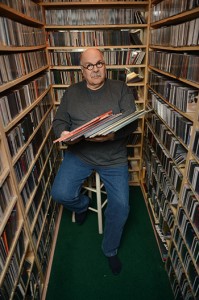
Abe Goldstien
Promoter and Aficionado
Meet Abe Goldstien once and you’re not liable to forget him. Endlessly upbeat and bombastic, with cherubic features accented by small, round glasses, Goldstien is passionate about jazz music in general, and jazz in Des Moines specifically.
After moving to Des Moines from New York in 1969, Goldstien didn’t waste any time embedding himself in the local music scene, putting together his first jazz concert for the Drake Major Arts Committee in 1972.
Today, Goldstien hosts three jazz-centric radio programs on KFMG, volunteers his time with the Community Jazz Center (CJC), oversees the CJC’s Hall of Fame and performs in his own band, the Java Jews. (“I don’t even play music,” he says with self-deprecating aplomb. “I play the accordion.”)
But perhaps Goldstien’s biggest contribution to the Central Iowa jazz scene is the annual slate of shows he books at Waukee’s Caspe Terrace.
“I got started because I went to see a movie at Caspe Terrace,” he explains. “I got to looking around the room and thought, ‘This would be perfect for jazz.’ Also about that time, I had become acquainted with a jazz bass player back in New York. One day we were chatting over email and he said, ‘My band’s traveling. You want to do something?’ and I said, ‘Sure. I’ve got the perfect place.’ And it just blossomed from that.”
Now in its eighth year, Jazz at Caspe Terrace brings in nationally and globally recognized names in jazz, as well as many musicians known only to the hardest-core of fans.
“There’s a lot of unsung players that are as good as if not better than the players that get all the attention,” Goldstien says. “And I’ve always been for the underdog.”
Befitting (perhaps reflective of) his own personality quirks, the Caspe Terrace shows are run a little differently from the gigs most of these musicians are used to. For starters, Goldstien’s not necessarily on the lookout for players who will fill the most seats.
“I got a call from an agent just the other day. ‘I’ve got this guy traveling.’ I don’t like him. ‘Well, I’ve got this Brazilian guitar player.’ I don’t like him. ‘But he draws real good at other venues.’ Well I don’t care; I don’t like him.”
Caspe Terrace is Goldstien’s passion project. It’s his yearly opportunity to indulge in his greatest joy, and he does so with abandon.
“They’re my shows,” he says with a chuckle. “I’m just letting everyone else participate.”
But just because Goldstien reaches out to a performer doesn’t mean the gig is booked just yet.
“I’ve got three requirements,” he explains. “One: I will not get you in the day of the gig. The reason why is my wife (Jackie Garnett) and I want to make sure the artist is able to see the community and get the vibe of Des Moines.
“Second requirement: The Waukee Area Arts Council hosts an after-concert dessert reception, so you have to be willing to stay after the show and talk to the people for as long as there are people there,” Goldstien says. “You can’t hide in the dressing room. And the third request is: My wife and I have our favorite song, ‘East of the Sun West of the Moon.’ You have to play it.”
Artists who trifle with The Requirements do so at their own peril.
“If you can’t do those three things,” he says, “then you can’t play here.”
Even people coming to watch the Caspe Terrace shows don’t get off easy. The artists Goldstien books are often avant-garde masters, demanding their listeners’ earnest attention and thought. Jazz at Caspe Terrace is not the kind of stuff you doze off to.
“Jazz should challenge you,” Goldstien says. “Anyone who can play me a tune in a surprising way, I like. If they’re pushing, that’s what jazz is all about.”
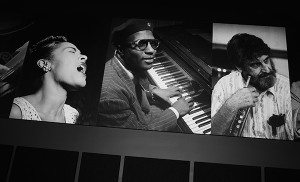
Turner Jazz Center
Hidden Gem
Opened in May 2011, Drake University’s Patty and Fred Turner Jazz Center is a product of the same human trait that spawned jazz itself: audacity.
“Fred Turner met his wife at Drake, and they’ve always had fond memories of (the university),” says Turner Jazz Center Orchestra (TJCO) board member Paul Bridson. “He went on to have a very nice career with a little hamburger chain called McDonald’s, and ended up as CEO. Then (Drake University President) David Maxwell was talking with Fred one day, and it turns out Fred is a huge jazz fan.”
The reason that’s relevant information is that David Maxwell’s father is late jazz trumpeter Jimmy Maxwell.
“Jimmy Maxwell played with the Benny Goodman Band,” Bridson explains. “He played in ‘The Tonight Show’ orchestra all through Jack Paar’s tenure. He’s the guy that found Doc Severinsen for Johnny Carson.”
Suddenly, Turner was very interested in what Maxwell had to say. For his part, the junior Maxwell decided to swing for the fences. Bridson again: “David said, ‘Well, how about you give us a couple million to build a new jazz center?’ and Fred said, ‘Sure. Done deal.’ ”
The final gift wound up actually being $1.5 million, but no matter what number precedes the first comma, the end result was still the Turner Jazz Center, a 100-seat music hall nestled deep in the embrace of Drake’s campus.
“We have this wonderful facility (now),” Bridson says. “It’s really a beautiful space. The room has a lot to do with why we founded the band.”
Founded three years ago, the TJCO is an 18-piece jazz orchestra, consisting of some of Iowa’s most prominent jazz performers and educators, including Drake’s own professor of jazz studies, Andrew Classen, who also serves as the orchestra’s leader and artistic director.
“The idea of the band is to have a professional organization that plays really cutting-edge music,” Bridson explains. “We’re still working on that balance between keeping ourselves happy and keeping an audience.” He adds with a smile, “It’s difficult to make that balance.”
Most of the TJCO’s performance slate ventures into the realm of more esoteric jazz, presented, as Thelonious Monk would say, straight, no chaser. But in addition to the TJCO’s more challenging shows, each season’s lineup also consists of more mainstream productions for Christmas and Valentine’s Day, where the orchestra performs sets of jazz and contemporary standards, accompanied by a vocalist. It’s a strategy that seems to be paying off.
“We had a group of about 40 die-hards that latched on in the first year and have been coming ever since,” Bridson says. “Now we’re seeing crowds at close to capacity.”
Nevertheless, the Turner Jazz Center remains underutilized. Civic Music Association prefers to use Drake’s larger Sheslow Auditorium, and the center’s hidden-away location on the Drake campus can make it difficult for first-timers to find.
But for those who’ve experienced its cutting-edge acoustics and one-of-a-kind ambience, the Turner Jazz Center is an experience to be cherished and repeated.
“I like the size of it,” says vocalist Max Wellman, who’s performed with the TJCO several times. “I like the acoustics of the room. There are very few spaces in the area that are that size that have the capabilities of that room.”



